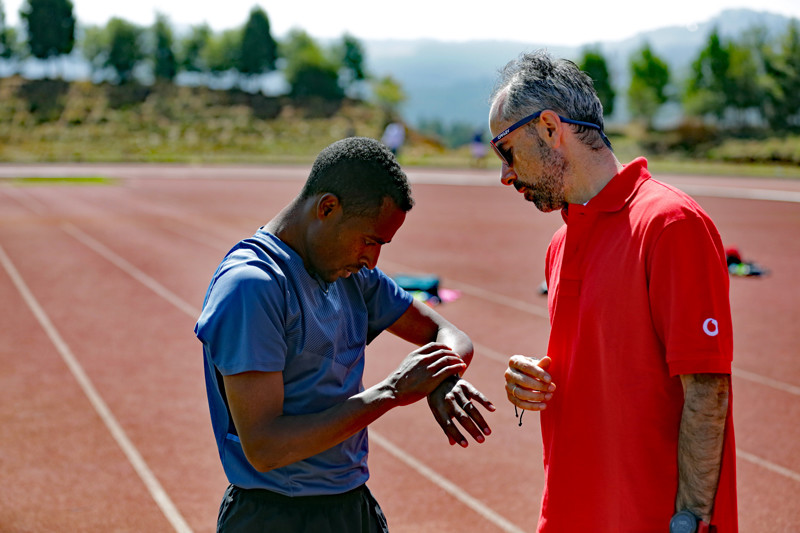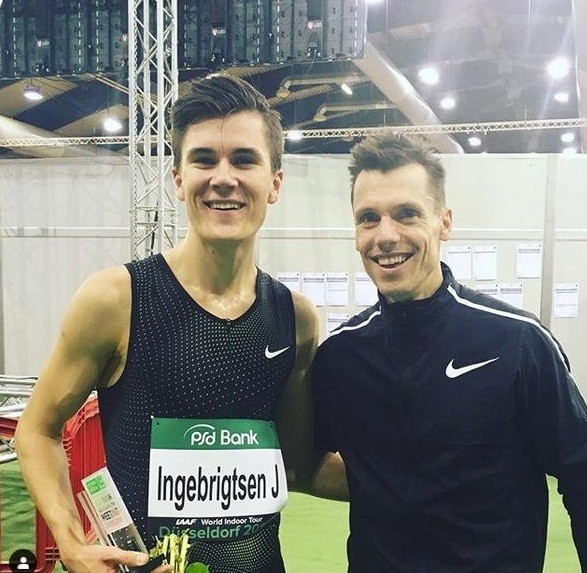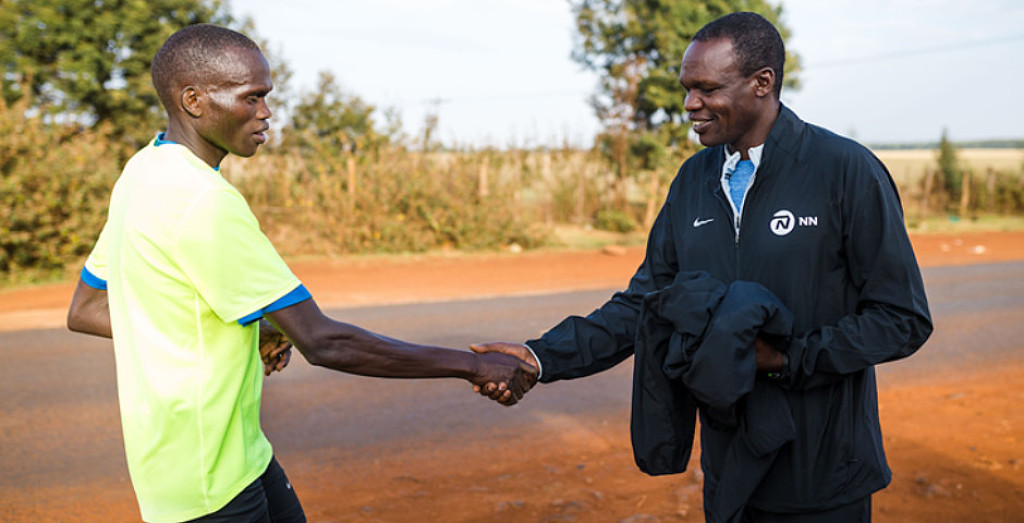Running News Daily
Running News Daily is edited by Bob Anderson. Send your news items to bob@mybestruns.com Advertising opportunities available. Train the Kenyan Way at KATA Kenya and Portugal owned and operated by Bob Anderson. Be sure to catch our movie A Long Run the movie KATA Running Camps and KATA Potato Farms - 31 now open in Kenya! https://kata.ke/
Index to Daily Posts · Sign Up For Updates · Run The World Feed
It is not only the athletes who have been forced to adjust during the Covid-19 pandemic but also their coaches
For Nelio Moura, former coach to 2008 Olympic long jump champion Irving Saladino, the lockdown has created a coaching conundrum spanning not just one country but two continents.
The Brazilian horizontal jumps coach works with several athletes from his homeland, including South American women’s long jump champion Eliane Martins, Uruguay’s South American long jump champion Emiliano Lasa and a trio of leading Chinese athletes.
Back on 19 January, Moura flew from Brazil to China completely unaware of the new coronavirus but by the time he landed in China two days later he says “the news of the coronavirus was everywhere,”

“The situation was getting worse, but we kept to the plan and two weeks later we flew to Madrid,” he explains.
Mersha Asrat, coach to three-time Olympic track champion Kenenisa Bekele, believes his role in the these challenging times is to put a plan in place to “survive the storm.”

With both the opportunity to race - in the foreseeable future - and group training taken away from athletes, he believes this has impacted on motivation.
Yet as a coach Asrat insists he has to remain positive.
“All my athletes need to be strong – a role model for others with their behaviour,” he says. “As a coach, I have to tell them that this will pass.”
With no events on the immediate horizon he has advised his athletes to rein back on the training – and he has recommended combining a mixture of endurance running and strength training.
“There are no races happening for some time so this is a time when they can run three time a week alternating with workouts. I’ve given them all individual workouts with a meaning. This is an opportunity to work on their strength exercises, to improve and even become masters of the workout.”
Despite the uncertainty surrounding future international competition, Dale Stevenson, coach to 2019 Diamond League shot champion and World Championship bronze medallist Tom Walsh, is preparing his athletes with the mindset that events will re-start sooner rather than later.
“When full training resumes, I’m hoping that it is a step in for us rather than a step back,” he explains. “So when they go back to normality they’ll feel as if they are a full-time athlete.”
Stevenson, a 2012 Olympic shot put representative for Australia, says as a coach he had to react quickly in March as New Zealand went from a level two alert to a full level four lockdown in a matter of 48 hours.
For athletes who remained in Christchurch such as Walsh, the main task for Stevenson and his coaching team was to source gym equipment while for others in his training group who has moved back to different regions the main task was to identify training implements during this frantic period.
The coach has been immensely impressed with how the athletes have readjusted to training in a full lockdown. Some have revealed great improvisation skills with one athlete converting a cow shed into a throwing area and another making a homemade hammer out of a kettle bell.
Stevenson too has been forced to adapt.
Patrick Sang, coach to world marathon record-holder Eliud Kipchoge and world half-marathon record-holder Geoffrey Kamworor, believes “delegating greater authority” to his athletes following training restrictions created by the Covid-19 pandemic is the biggest challenge he has faced.
Sang coaches a large group of athletes based out of a training group in Kaptagat, Kenya, but government restrictions around group gatherings put in place in March meant athletes had to head home to their families and train alone.
Breaking down his athletes into smaller groups of track and marathon athletes the initial challenge was communication but having alleviated this issue thanks to WhatsApp and other methods it has been his lack of a “coach’s eye” on the progress of his athletes which has proved the biggest obstacle.
“Our coaching is very much one on one and the ‘coach’s eye’ is an instrument we use to see how the individual athletes are responding to the workload at any given time. The activation of the coach’s eye in these circumstances is not possible. You are relying on the feedback of the athletes.”
Sang insists the athlete manager, Valentijn Trouw, has played a pivotal role in maintaining the information flow to athletes to help them maintain a positive stance in challenging times.
And positivity is the keen message Sang likes to emit at all times.
“We’ve experienced calamities before and normally they don’t last forever,” explains Sang. “We have a time scale and a race plan (for later in the year) we are looking at and our energies are focused on the remaining part of the season.”
Coach to a group of athletes led by 2017 World 1500m champion Faith Kipyegon, Dutch-based Bram Som says it is important to stay focused on the “circle of influence” and not the “circle of concern” during the Covid-19 crisis.
“One of the biggest challenges is that you no longer look an athlete in the eye to see how he or she is behaving,” explains Som, a former European 800m champion. “To counter this you have to improve your conversation skills, ask the right questions and listen carefully.”
Som insists the middle-distance athletes he coaches have largely been able to carry out long runs, interval and hill sessions as normal but he has also introduced solo time trials to keep the athletes focused. Flexibility, he insists, is key.
by World Athletics
Login to leave a comment




